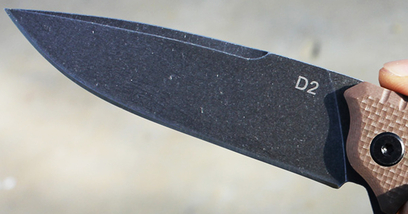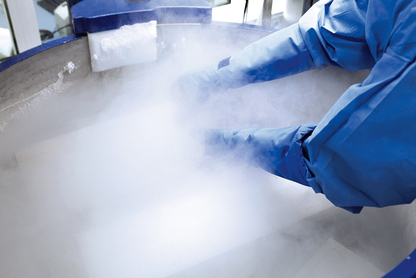In this guide, we'll take an in-depth look at the D2 steel blades found in many pocket knives! What makes them great for blade steel?
D2 Steel Development
D2 is a typical tool and knife steel also known as Japanese SKD11, the German 1.2379, Hitachi SLD, and Sverker 21, including a variety of other designations.

But, how long has it been around? Who was the first to use it in knives? How does it compare to other steels in terms of properties? And What makes it great for EDC pocket knives?
5 Great Pocket Knives to Carry for EDC in 2022
The invention of stainless steel and high-speed steel coincided in part with the development of D2 steel.
What makes D2 steel unique is it's high carbon content. Other similar steel is D3 and D4 which have less carbon.
5 Best Straight Edge Pocket Knives for EDC
D2 is a high carbon, high chromium steel, which is a tool steel category. It took until 1821 for ferrochromium to be invented, and then until 1895 for low carbon ferrochromium to be developed before chromium-alloyed steel could be produced.
What are CPM 3V Steel Knife Blades? Everything You Need to Know Before You Buy
The first commercially produced steel with chromium added in 1861.
During World War I, high carbon, high chromium steels were widely employed in England for a variety of purposes.
5 Best Fixed Blade Knives for Concealed Carry
It took some time before D2 was used in knives. The first recorded use I can find is by D.E. Henry in 1965 or 1966.
7 Best Wallets for Everyday Carry!
It worked well as a knife steel because of its great wear resistance, as well as its hardness and toughness.
5 Best Serrated Edge Pocket Knives for EDC
D2 has since been used in many knives and has overtime been improved to what we know it to be today!

How Carbon Makes Steel Better
By infusing steel with carbon through a heat treating process, carbon makes iron or steel much stronger and gives it many properties that make it great for use as blade steel.
3 Best Fixed Blade Knives for Ankle Carry
While carbon steel can still stress and crack under strain, it does so less frequently than other steels. Carbon increase steel's hardness and durability.
Cryogenically Hardened D2 Steel
Cryogenic treatment of D2 steel is the next best thing for pocket knives.

Cryogenic treatment of knives involves progressively bringing the steel to cryogenic temperatures of -300°F.
How to Safely Close Different Types Locking Mechanisms: Pocket Knives
After the cryogenic treatment, the material is post-tempered for further refining.
The entire procedure is a heat-treating extension that affects the material's microstructure and improves the steel in the following ways:
- Voids and imperfections in the grain structure are eliminated, providing for more consistent sharpening and a better edge
- The increased resistance to wear means the edge will hold longer and the knife will stay sharper
- Less failures due to cracking that result from the propagation of stress lines
- Reduced coefficient of friction due to micro-smoothing
- Easier polishing and grinding with less material removal needed to re-sharpen the edge
Knife producers cryogenically treat their steel to get the most out of the steel's qualities, and it doesn't make blades any more expensive, but the price will be slightly higher justifiably for a better quality knife.
Off-Grid Knives Rapid Fire Ranger
Cryogenically Treated D2 Steel Blade

D2 Blade Steel Today and Final Thoughts
D2 blade steel continues to be used today. There are thousands of pocket knives on the market today that use D2 blade steel.
5 Best Self Defense Keychain Set Options
It's strength, versatility, corrosion resistance, and durability is what continues to make this steel popular.
7 Best EDC Police & Security Flashlights
D2 will most certainly continue to be used in knives due to its good qualities and decades-long reputation.
